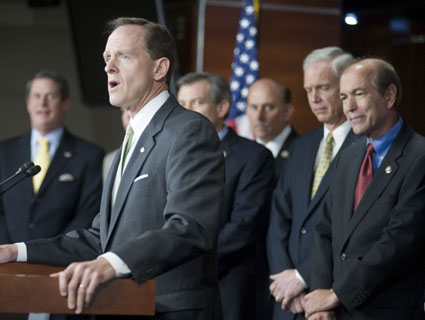Congress’ 12-member “Super Committee,” charged with crafting a plan to cut $1.2 trillion from the federal deficit in the next decade, is up and running. The bipartisan panel of veteran lawmakers first convened on Sept. 8, and is plowing ahead so as to meet its Nov. 23 deadline to deliver its budget-slashing recommendations.
As the fiscal fighting ramps up, fourteen good-government and transparency groups are calling for Super Committee members to publicize any campaign donations received and any lobbyist meetings while the committee does its work. The reasoning here is obvious: If committee members are meeting behind closed doors with, say, oil industry lobbyists at the same time they’re debating deficit-cutting measures, they could be swayed to oppose closing tax loopholes for oil companies, worth an estimated $4.4 billion a year—and the public would never know about it.
Failing to disclose donations and interactions with lobbyists, the DC-based Sunlight Foundation argues, “will reinforce the public’s mistrust of the deficit reduction process and risk delegitimizing the Committee’s work.”
At least one lawmaker, Sen. John Kerry (D-Mass.), has said he won’t fundraise and will limit contact with lobbyists during his time on the Super Committee, which is made up of six House members and six Senators, split evenly between Democrats and Republicans.
Here’s the letter from good-government and transparency groups to the Super Committee:
















